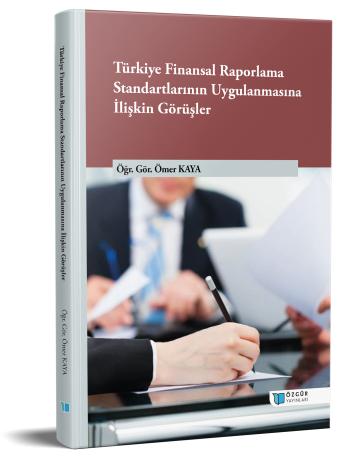
Opinions on the Application of Turkish Financial Reporting Standards
Synopsis
The globalisation of capital markets, the internationalisation of investment decisions and company mergers, and the economic crises experienced in various countries, have long drawn attention to the need for companies to stop using different accounting practices and to adopt a common, single standard. To this end, International Financial Reporting Standards have been established by various national and international organisations, and Turkey, like many other countries, has started to make efforts to adapt to these standards.
The present study aims to determine the opinions of members of the accounting profession who are implementing the standards about the standards themselves and the issues they experience while implementing them. The study also investigates whether or not the demographic characteristics of accounting professionals have any impact on the issues they experience or the opinions they hold in connection with the standards.
A survey was conducted with 269 members of the accounting profession working at firms whose stocks are traded on the Istanbul stock exchange, Borsa Istanbul. The survey results revealed that the majority of accounting professionals have positive opinions of the TFRS, and consider the implementation of the TFRS to be more desirable than the use of the domestic accounting rules. The survey showed that accounting professionals feel that the use of the TFRS has improved the quality of financial information presented in financial reports and that the government has played a pioneering role in the adoption process of the standards. The study also indicated that accounting professionals find the training provided about the TFRS at undergraduate and postgraduate levels insufficient. Analyses of the survey findings revealed that the general opinions of the accounting professionals implementing the standards, their opinions on the services provided by the relevant institutions in connection with the standards, and the issues they experience while implementing the standards are related to their demographic characteristics (age, education, position, professional competencies, and reasons for adopting the standards).
By comparison with previous studies, the originality of the present study stems from the fact that it was conducted exclusively with accounting professionals working at companies active on the Borsa Istanbul, and from the large size of the sample. The study is important for the light which it sheds on the general opinions about the TFRS of the accounting professionals who are responsible for their implementation. In addition, it is hoped that the information which the study provides on the way the professionals assess the training provided about the TFRS, and on the issues which they experience while implementing them, will ensure that the educational institutions concerned review their training programmes and at the same time provide a roadmap for the development by the relevant institutions of the policies needed to resolve the issues experienced.
it was conducted exclusively with accounting professionals working at companies active on the Borsa Istanbul, and from the large size of the sample. In addition, it is hoped that the information which the study provides on the way the professionals assess the training provided about the TFRS, and on the issues which they experience while implementing them, will ensure that the educational institutions concerned review their training programmes and at the same time provide a roadmap for the development by the relevant institutions of the policies needed to resolve the issues experienced.

